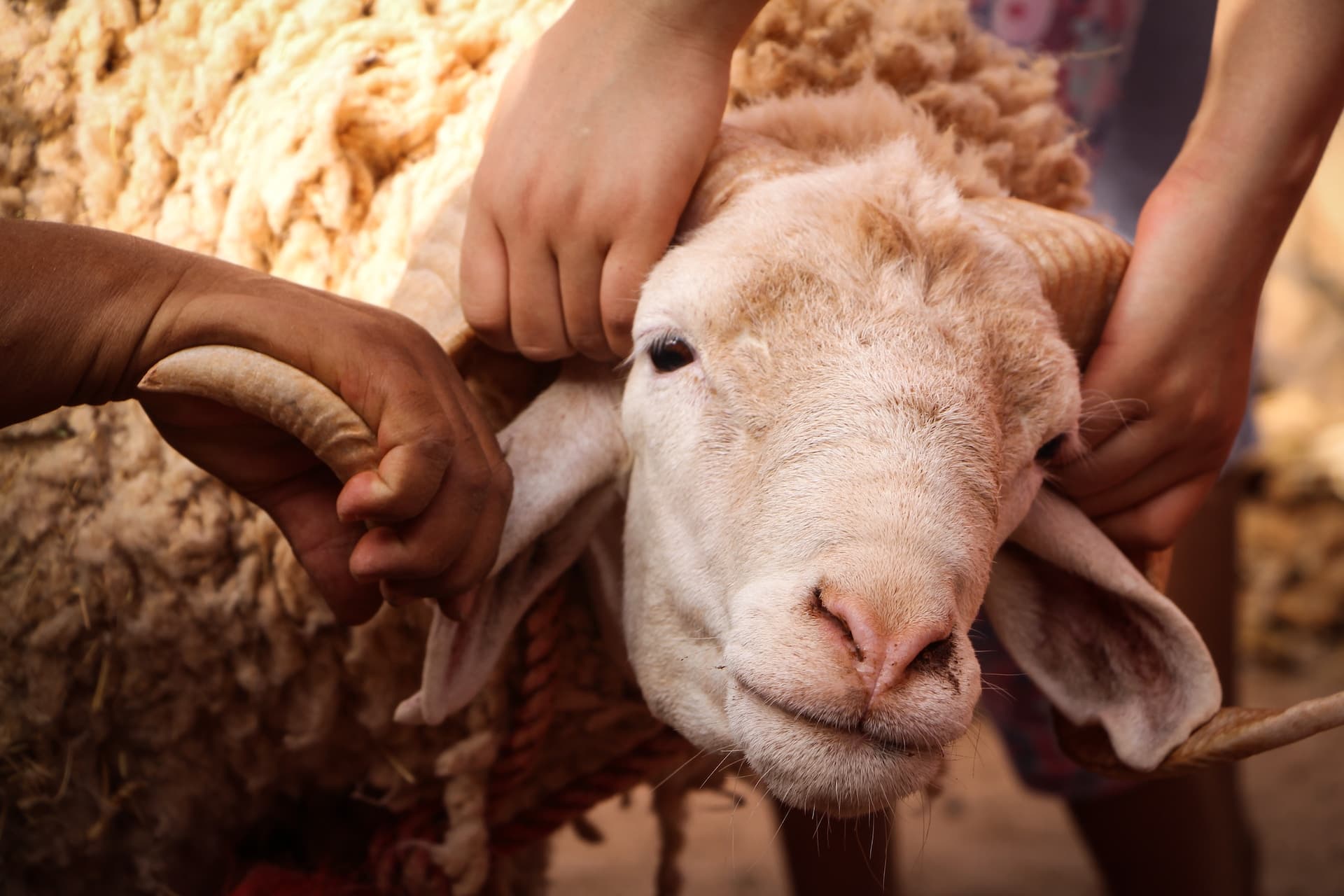Eid-ul-Adha, also known as the Festival of Sacrifice, is a significant Muslim celebration that involves the ritualistic sacrifice of animals such as cows, goats, or camels. While this practice may be perceived by some as cruel or unnecessary, it is essential to explore the deeper meaning behind this act and its relevance to our own lives. Sacrifice holds a prominent place in various religious and mythological traditions worldwide, demonstrating a universal archetype that transcends cultural boundaries. By understanding the concept of sacrifice, we can appreciate its role in personal growth, selflessness, and the betterment of society.
The Historical and Cultural Context:
The origins of Eid-ul-Adha can be traced back to the biblical story of Ibrahim (Abraham) being tested by Allah to sacrifice his beloved son Ishmael. This narrative emphasizes the importance of unwavering faith, but it also offers profound insights into the archetype of sacrifice. Similarly, other historical and mythological accounts, such as the sacrifice of Osiris in ancient Egyptian mythology or Jesus Christ’s sacrificial act in Christianity, reveal a common theme: sacrifice as a means of achieving transformation, redemption, and atonement.
The Essence of Sacrifice:
Sacrifice, at its core, often demands self-discipline, empathy, and the willingness to act for the greater good, even in adverse circumstances. It encapsulates various aspects of our lives, from the mother sacrificing her sleep for her newborn to the soldier giving their life on the battlefield to protect others. In a world driven by instant gratification and self-centered desires, embracing sacrifice requires discipline and a relinquishment of the ego’s incessant demands.
The Symbolism Behind the Ritual:
The ritualistic sacrifice itself is symbolic, and its true significance lies beyond the mere act. Without grasping its deeper meaning, the ritual loses its essence. Throughout our lives, we may encounter situations where sacrifice becomes necessary for personal growth and spiritual evolution. Whether it involves relinquishing detrimental habits, outdated beliefs, or toxic conditioning, sacrifice opens the path to transformation and renewal. By exercising discernment and judgment, we can break free from self-victimization and the cycle of guilt, allowing us to thrive for the greater good.
Transformation and Letting Go:
The purpose of sacrifice extends beyond the immediate act; it aims for transformation and liberation. Just as Allah replaced Ibrahim’s son with a ram, offering a path to redemption, sacrifice can catalyze profound change in our lives. While our aspirations may not be as grandiose, sacrifice remains integral to our individual journey of self-discovery and personal growth. Moreover, the act of sacrifice confronts us with the universal truth of mortality. Learning to detach from people, places, and things without excessive attachment fosters emotional growth, resilience, and acceptance.
The Impact on Personal Perspectives:
Reflecting on personal experiences, the author recounts witnessing the slaughter of a cow during Qurbani in their youth. This poignant moment exposed them to the harsh realities of life and left a lasting impression. Although initially traumatic, it prompted introspection and a deeper understanding of sacrifice’s significance. The author emphasizes that sacrifice should not be overlooked amidst the celebrations and feasting of Eid; rather, it should be contemplated in terms of personal growth, empathy, and its potential to benefit others.
Sacrifice for Personal and Collective Well-being:
Sacrifice encompasses stepping outside of our individual desires and ego to shape our lives in ways that serve both ourselves and humanity as a whole. Examples, such as fidelity and monogamy in relationships or prioritizing work over leisure to achieve long-term goals, highlight how sacrifice can enable stability, growth, and the strengthening of social bonds. In line with this ethos, the Qurbani sacrifice encourages the division and sharing of meat with the community and those in need, promoting solidarity, compassion, and the embodiment of sacrifice in our daily lives.
The Moral and Ethical Implications:
While sacrifice is often associated with acts of goodwill and selflessness, it is essential to exercise discernment and reflect on its moral and ethical dimensions. Sacrificing one’s own needs and desires for the sake of others can be admirable, but it should not lead to self-neglect or martyrdom. It is crucial to strike a balance between self-care and altruism, ensuring that sacrifices made are rooted in genuine compassion and do not perpetuate a cycle of self-sacrifice that undermines our own well-being.
The Impact on Animals:
While discussing the significance of sacrifice, it is crucial to address the impact on the animals that are slaughtered during the Eid-ul-Adha ritual. The act of sacrificing animals can raise ethical concerns and prompt discussions about animal welfare and compassionate treatment.
It is important to acknowledge that animals are sentient beings capable of experiencing pain and suffering. As mass slaughters of animals take place during this festival, there are valid concerns about the welfare of these animals and the methods used for their slaughter.
Moreover, the ritual of sacrifice should not be reduced to a mere display of wealth or status. It is crucial to remember the intrinsic value of these animals and the responsibility that comes with their sacrifice. The focus should be on reverence, gratitude, and ensuring that the animals are treated with dignity throughout the process.
As society evolves, there is a growing recognition of the need to strike a balance between cultural and religious practices and the ethical treatment of animals. It is incumbent upon individuals and communities to promote discussions around animal welfare and explore alternative methods of sacrifice that minimize harm and suffering.
In conclusion, the significance of sacrifice extends far beyond religious rituals; it holds a profound place in our collective human experience. Understanding its transformative power and embracing the discipline it demands can lead to personal growth, selflessness, and the betterment of society. Encouraging ethical treatment and advocating for humane practices aligns with the principles of compassion and respect that underlie the essence of sacrifice. By commemorating and honoring the sacrifices made, not only during Eid-ul-Adha but throughout our lives, we can embody the spirit of sacrifice and cultivate a sense of empathy, compassion, and solidarity that contribute to a more harmonious and interconnected world. Published first on Ice Today.








